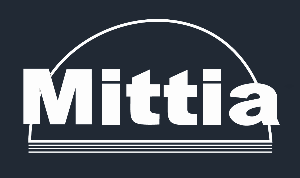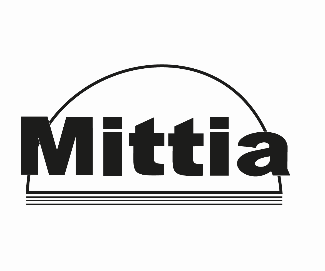Ethical data administration prohibits the misrepresentation of facts or using information to justify unethical choices limitations of artificial intelligence. Maintaining knowledge integrity is essential for building belief and credibility in data-driven processes. Ethical information administration, including huge knowledge ethics, is guided by a set of principles aimed toward ensuring the accountable and respectful handling of knowledge.
Eu-us Dpf: What Next For Uk Businesses?
Trust is the cornerstone of any relationship, including these mediated by know-how. On the other hand, transparency communicates why knowledge is collected and who may have access to it all through the data lifecycle. This openness allows people to make informed selections about their participation in digital services. Amid the rise of data regulation, such because the General Data Protection Regulation (GDPR) in Europe, most organizations are aware of the growing importance of knowledge ethics.
Information Governance Analyst Job Description – Profession Deep Dive
Just as it’s thought of stealing to take an item that doesn’t belong to you, it’s unlawful and unethical to collect someone’s personal information without their consent. Accountability implies that the group is responsible for the info after it is collected. If there are any breaches, deletions, or leaks, the organization is held accountable for the violation and its consequences for users. The social security numbers and passwords of simply about 147 million people were stolen. Due to its poor information safety policies, Equifax was deemed accountable for this information breach.
Implementing this framework will not only create a powerful basis of belief with those from whom data is collected however may also guarantee compliance with many rising data safety laws worldwide. Data Governance and safety usually are not static but require ongoing consideration to adapt to new technologies, threats, and regulatory changes. By steadfastly committing to these elements, organizations protect themselves from dangers and build a foundation of belief with their stakeholders – a important asset in today’s digital age.
You should protect knowledge from unauthorized or unlawful processing and unintentional loss, destruction, or damage. It means you shouldn’t purposely withhold details about what or why you’re amassing knowledge. In different words, users wouldn’t be shocked if they knew the way you had been using their knowledge. This principle tells us that you need to solely process personal information for the aim that you originally intended.
You will study critical abilities corresponding to building data pipelines, clustering using k-means, information analytics using R and Python, knowledge mining, and information ethics. Now that we know the advantages and pitfalls of knowledge ethics let’s evaluate some greatest practices you should observe to make sure the correct implementation of knowledge ethics in your processes. In addition to a public relations fiasco, such instances can lead to buyer loss and a dent in the monetary bottom line. In today’s world of social media, such negative news can unfold far and broad and have an effect on the company’s picture worldwide in no time. Further, the info leaked is vulnerable to malicious usage that will harm the individuals concerned and snowball into greater issues. Data ethics contains certain rules that are central to formulating a complete knowledge ethics coverage.
Even if a buyer offers your company consent to gather, store, and analyze their personally identifiable information (PII), that doesn’t mean they need it publicly obtainable. Data ethics are right here to remain and can only get more stringent as more companies adopt knowledge analytics and AI as a part of their processes. As information ethics laws become stricter, industries want specialists who can use information analytics to navigate those complexities.
After enrolling in a program, you may request a withdrawal with refund (minus a $100 nonrefundable enrollment fee) up until 24 hours after the start of your program. Updates to your utility and enrollment standing shall be proven in your account page. We confirm enrollment eligibility inside one week of your application for CORe and three weeks for CLIMB. HBS Online does not use race, gender, ethnicity, or any protected class as criteria for admissions for any HBS Online program. All members should be no less than 18 years of age, proficient in English, and committed to studying and fascinating with fellow members all through the program.
Enterprises are in search of individuals who might help monitor and manage their compliance with data rules. Regardless of which part of the group the leaders goal first, they should establish KPIs that can be used to watch and measure its performance in realizing their data ethics aims. To make positive that the ethical use of knowledge becomes part of everyone’s every day work, the leadership team alsoshould advocate, assist to construct, and facilitate formal coaching packages on information ethics. One multinational financial-services company has developed an effective construction for its knowledge ethics deliberations and determination making. Regular audits might help ensure that the organization’s data ethics insurance policies and procedures are being adopted. The results of the audits must be used to identify areas where the framework needs to be strengthened or improved.
But teams may wish to herald outside specialists to navigate significantly difficult ethical challenges. For example, a big tech company introduced in a tutorial expert on AI ethics to assist it figure out how to navigate grey areas, such as the environmental impact of sure varieties of information use. Moreover, a knowledge ethics framework is not just a set of policies and procedures; it’s a tradition that must be embraced all through the organization. This signifies that workers in any respect levels should understand the significance of knowledge ethics and their function in sustaining it. Effective coaching packages can help staff understand the sensible implications of knowledge ethics, and regular monitoring and evaluation may help ensure that the framework remains efficient over time. The first step in training staff in knowledge ethics is to create a comprehensive training program.
Clear and accessible information should be provided to people relating to what knowledge is being collected, how it’ll be used and who’ll have entry to it. Transparency fosters trust and empowers individuals to make knowledgeable decisions about their knowledge. The Royal Children’s Hospital in Melbourne adheres to moral guidelines for paediatric data research, prioritising patient privateness, consent and knowledge security.
Data ethics refers again to the ethical rules and tips that govern the ethics of data collection, processing and use. In specific, they tackle the ethical considerations arising from the increasingly pervasive role of information in various features of modern life. As executives navigate utilization questions, they must acknowledge that though regulatory necessities and ethical obligations are related, adherence to data ethics goes far beyond the query of what’s authorized. In a 2021 McKinsey Global Survey on the state of AI, for instance, solely 27 percent of some 1,000 respondents said that their information professionals actively examine for skewed or biased information during information ingestion. Only 17 percent stated that their firms have a dedicated data governance committee that includes threat and legal professionals.
- In our expertise, this committee is most effective when it is formally built-in into the compliance group.
- By selling diversity and inclusion in data analysis, organizations can keep away from making biased or unfair choices based mostly on the info.
- Regarding the third GDPR precept, we shouldn’t maintain knowledge lying around if we now have no want for it.
- Data ethics is important for organizations as a end result of it helps to ensure that they function in a method that’s respectful, reliable, and responsible in terms of amassing, dealing with, and utilizing data.
- Ignoring data ethics can result in breaches of privacy, erosion of trust, legal liabilities, and reputational damage for organizations, finally undermining their long-term success and sustainability.
While all the opposite ideas that we’ve seen thus far are about figuring out as little as potential in regards to the folks whose knowledge we process, this one is sort of the opposite. It signifies that the private information we are processing must be right and up to date, and that you just as the data controller and/or processor ought to take “reasonable measures” to guarantee that. This is, nonetheless, only related when the accuracy of the non-public knowledge is of importance for the person the data is about. At Formiti, our Outsourced DPO service offers organisations entry to a group of knowledge protection specialists with international expertise. This precept ensures that non-public knowledge remains dependable, which is crucial for shielding people from potential harm attributable to outdated or incorrect information. Combatting this problem requires a conscientious effort at each stage of data handling.
It permits us to reap the benefits of data-driven technologies while defending our basic rights and values. These ideas assist organisations navigate the complicated panorama of information use whereas upholding particular person rights, promoting fairness and fostering belief. A data management plan outlines how a company will manage its data throughout its lifecycle, from collection to disposal. Data ethics is the set of ethical principles and values that guide the responsible and ethical use of data. It is anxious with issues such as privateness, safety, transparency, equity, and accountability in data assortment, storage, evaluation, and dissemination. By adhering to these rules, organizations can construct trust with their stakeholders, defend particular person rights, and contribute to a more responsible and moral knowledge ecosystem.


Lämna en kommentar